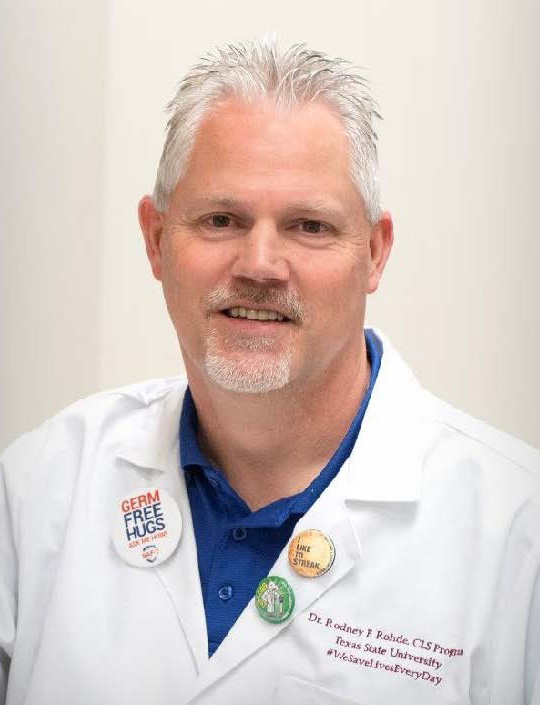ARCHIVED: NOT AVAILABLE FOR CREDIT
Rabies Update: Epidemiology, Diagnostics, Treatment and More!
Recently, a student at Texas State University handled a “downed/sick” bat and was not aware of the risk surrounding contact with a bat. The case will be discussed in terms of (1) the scenario that took place with the student; (2) rabies public health education and epidemiology; (3) specimen collection requirements; and (4) laboratory diagnostics of specimens submitted for rabies testing. Dr. Rohde has worked in the field of zoonotic diseases for over 30 years and has extensive public health and medical laboratory experience with the rabies virus.
Originally published on March 6, 2023
Lecture Presenter
 | Rodney E. Rohde, PhD, MS, SM(ASCP)CM, SVCM, MBCM, FACSc Regents’ Professor |
Rodney E. Rohde, PhD is a Regents’ Professor, Texas State University System, University Distinguished Chair and Professor for the Clinical Laboratory Science (CLS) Program in the College of Health Professions at Texas State University. He also serves as associate director for the Translational Health Research Center. Dr. Rohde is a Global Fellow, Fellow of the Association of Clinical Scientists, and Honorary Professor of International Studies. He is an ASCP board certified specialist in virology, microbiology and molecular biology. He spent a decade as a public health microbiologist and molecular epidemiologist with the Texas Department of State Health Services (DSHS) Bureau of Laboratories and Zoonosis Control Division prior to his academic career, including two terms as a CDC visiting scientist. Dr. Rohde served as associate dean for Research in the College of Health Professions for nine years. His research interests include Healthcare Associated Infections (HAIs), antimicrobial resistance, and clinical / public health microbiology especially zoonotic diseases (rabies, hantavirus, and others). He also continues to enjoy his role as an associate adjunct professor of Biology with Austin Community College (28 years) where he teaches fundamentals of biology and microbiology courses.
Dr. Rohde is an active leader in multiple professional organizations, including the American Society of Clinical Laboratory Science (ASCLS), American Society of Clinical Pathology (ASCP), American Society of Clinical Microbiology (ASM) and the Texas Association for Clinical Laboratory Science (TACLS). He served as a board member, president and past president of TACLS and chair of the Microbiology and Public Health Scientific Advisory Board with ASCLS. Dr. Rohde is considered a global expert and advocate for his research areas and professions.
Objectives
After this presentation, participants will be able to:
- Describe a step-by-step plan for someone coming into contact with bats (or other wildlife)
- Recognize the critical importance of obtaining an animal exposure history from any person/patient presenting with an unknown cause of a progressive encephalopathy
- Describe the epidemiology associated with U.S. cases of rabies in the past five years, especially the importance that wildlife reservoirs (e.g., insectivorous bats) have played in the transmission of rabies to humans
- Review the type of samples to be collected, the guidelines for collection of these samples, the different laboratory methods (human and animal tests) used to diagnose rabies infections, including the standard test, for a suspected rabies case in a human
Sponsored by:
University of Utah School of Medicine, Department of Pathology, and ARUP Laboratories
 Site Search
Site Search

